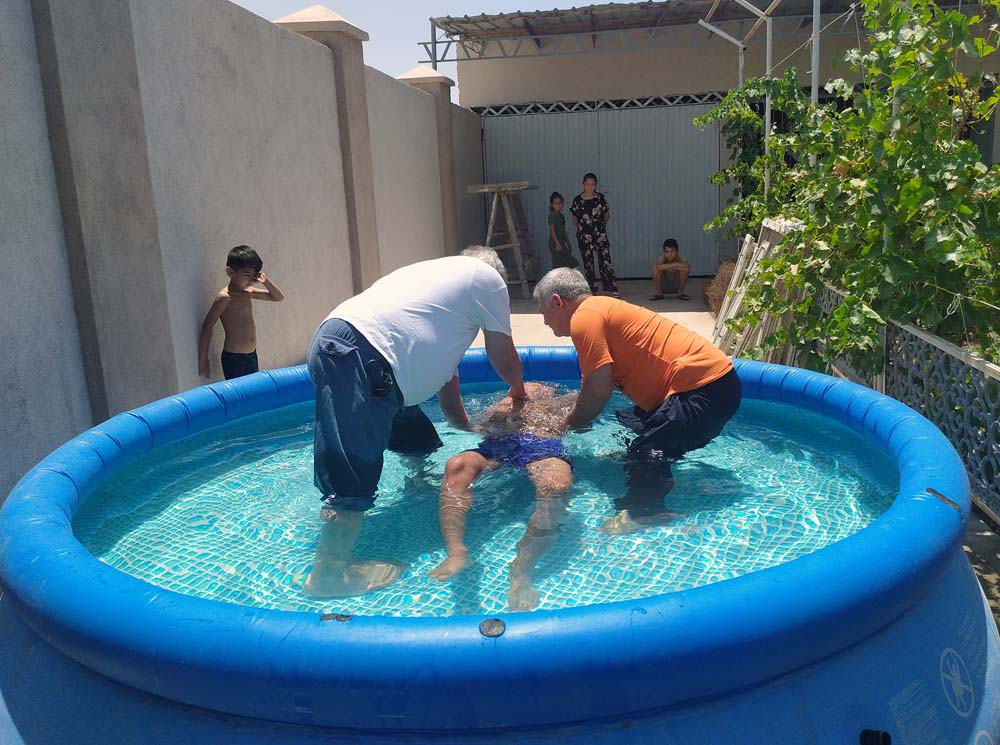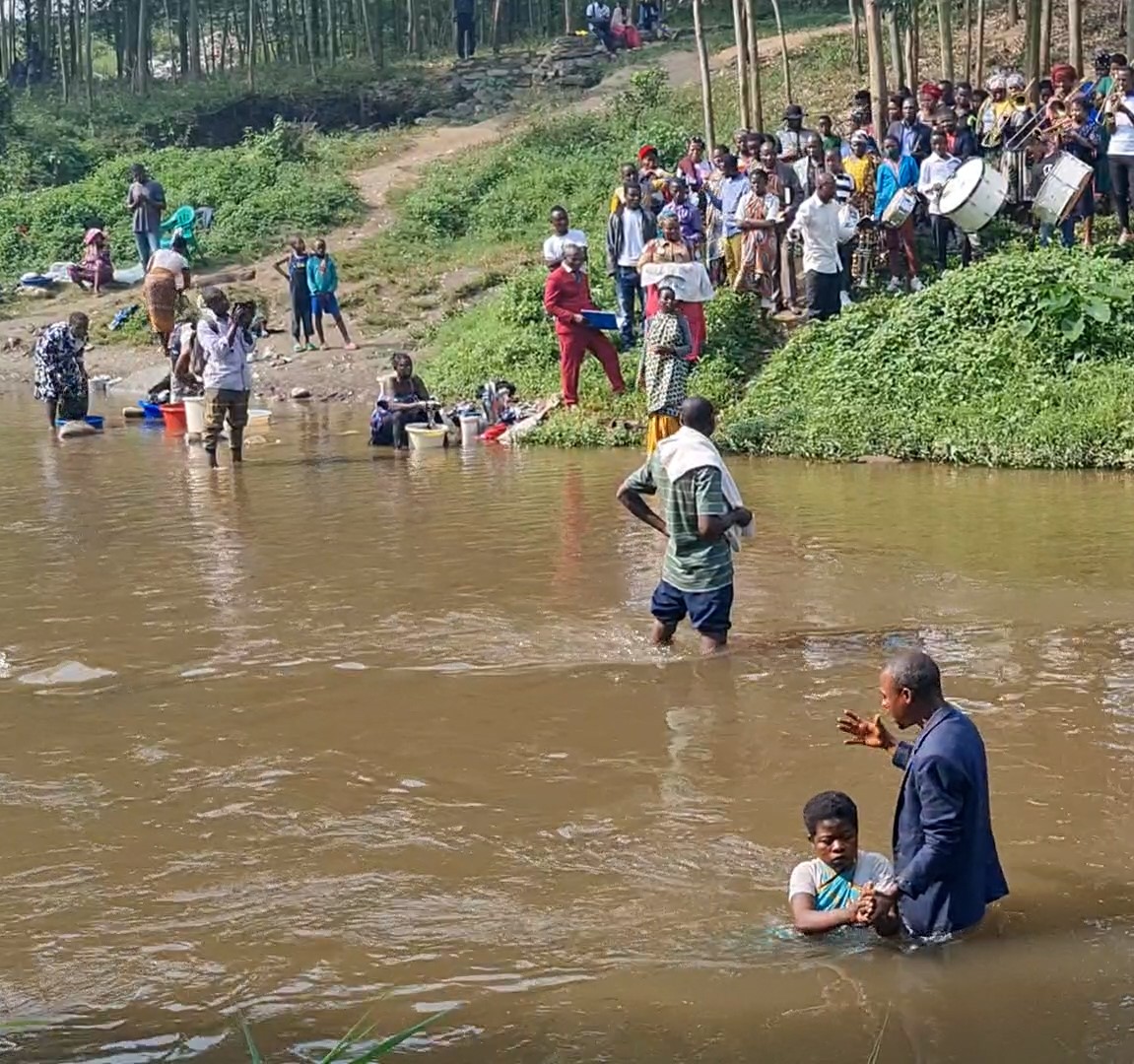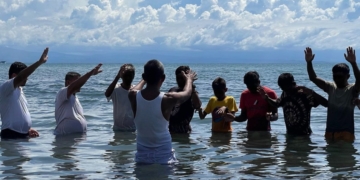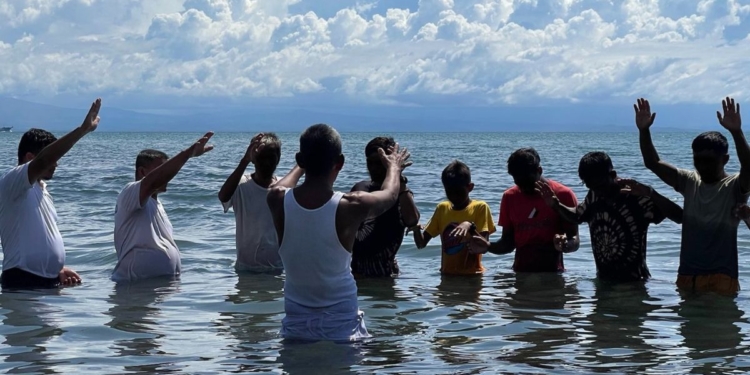Since the beginning of Christianity, baptism and Jesus’ resurrection have been tied closely together. Easter Sunday — the day Christians celebrate the resurrection of Christ — has been a traditional day to be baptized since at least the third century.
Easter has always been a day of publicly declaring our allegiance to Jesus, in baptism, in celebration and in worship.
But for millions of Christians around the world today, it isn’t quite so simple.
Some live with the knowledge that they could be attacked or bombed. You may remember when three churches in Sri Lanka were bombed on Easter Sunday 2019. We saw similar violence in 2016 at a church in Pakistan.
Some Christians will celebrate Easter this year with the painful memory of losing loved ones, like hundreds of believers in the Democratic Republic of the Congo still grieving the deaths of 17 people killed during a baptism service in 2023.
And others mourn that they can’t publicly declare their faith.
A woman we’ll call “Esther” lives in a Southeast Asian country where being a Christian is so dangerous we can’t even tell you the name of her home nation. Because of the risks, she had to flee to Europe. But she was recently able to share her faith with others from her homeland — and they accepted Jesus and wanted to be baptized.
As they stepped into the cold waters of a European ocean, Esther gave glory to God for the simple freedom to publicly declare faith through baptism.
“Here, I can do God’s work freely,” she says. “There’s no need to hide when we are doing baptism. Back home, we would usually need to find a private pool or an apartment pool at night.”

Some Christians who take the bold step of baptism do so at a high cost. When Bangladeshi believer Abed (not his real name) was baptized, the news of his conversion spread like wildfire.
The consequences were severe: “My wife left me, saying, ‘If you do not renounce your faith, I will not stay with you,’” Abed said. “I love my son a lot. Now it is already four months since I’ve seen him. … My heart is breaking every day.”
Publicly proclaiming your faith in Jesus and joining His people can be a dangerous prospect. In many ways, it’s the same story that played out at the end of Holy Week — with a group of scared disciples, afraid of what it would mean for their lives if their friendship with Jesus was discovered. John 20:19 even tells us, “The disciples were together, with the doors locked for fear of the Jewish leaders.”
And yet, the resurrection power of Jesus is at work — both then and now. John 20:19 may begin with a huddle of anxious people grieving their leader’s death, but it doesn’t end that way: “Jesus came and stood among them and said, ‘Peace be with you!’”

Throughout the world each Easter, we see the hope of the resurrection on display in baptism.
“We were buried therefore with him by baptism into death, in order that, just as Christ was raised from the dead by the glory of the Father, we too might walk in newness of life,” Paul writes in Romans 6:4. That’s probably why millions of Christians still risk their comfort, their safety and even their lives to be baptized into His church.
Bon-Hwa (not her real name) is from North Korea, which Open Doors ranks as the No. 1 most dangerous country in the world to be a Christian. She was able to escape from her country and learned about Jesus. In time, she asked to be baptized.
The Open Doors worker who baptized her shared, “Bon-Hwa wanted to be baptized so badly that she couldn’t wait any longer. Because it was too dangerous to baptize her where she lives, they traveled separately to one of our safehouses in a remote town.”
This pastor described the scene as a “holy moment.”
“I had to contain myself and focus on the steps of the ceremony, or else I would have cried loudly myself,” he said. “It was such a beautiful moment and such a privilege to baptize a North Korean believer in these circumstances.”
This Easter Sunday, some Christians will go to their church knowing that a bomb could go off. Some will worship in secret — and plan for their baptisms in secret. But the resilience of our Christian family reminds us that the power of Jesus’ resurrection has not been blunted by persecution.
The hope He offers us through His Easter sacrifice is on display every time a persecuted Christian is dipped into the water and hears the words, “I baptize you in the name of the Father, the Son and the Holy Spirit.”
This article appeared originally on The Western Journal.


























 Continue with Google
Continue with Google